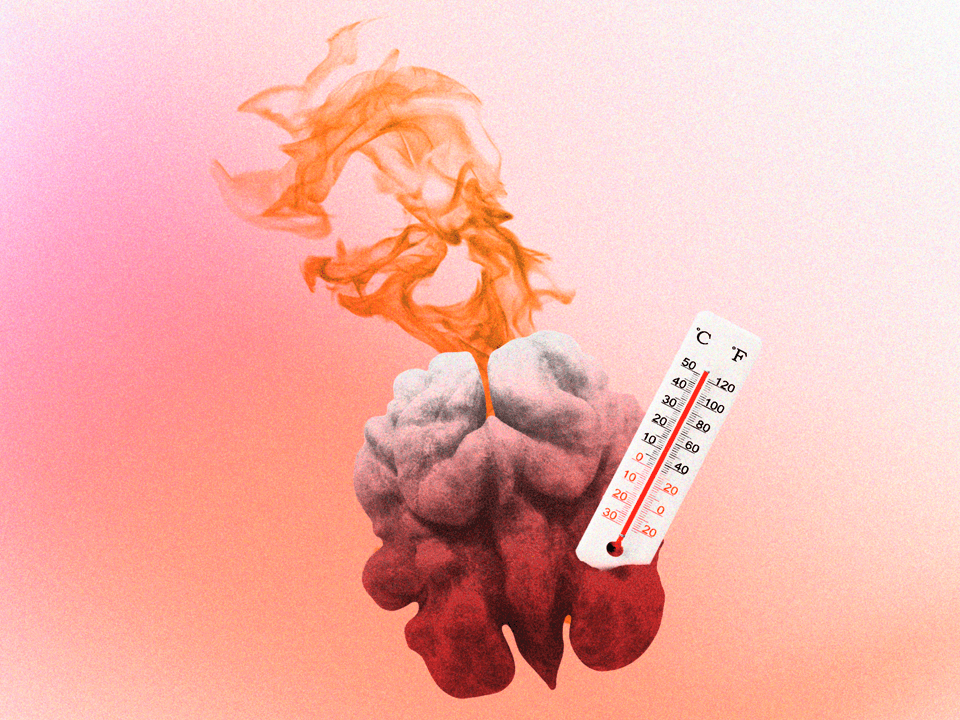Maybe you’re mad at your sister for forgetting to ask to borrow your headphones yet again. Or perhaps you get red-hot road rage more often than you’d like to admit. Maybe you’ve been pushing down some angry feels that sprung up after someone seriously hurt you. Whatever is straight-up pissing you off, journaling can help, says psychotherapist Sahar Martinez, PsyD, LMFT.
If you’re like, “Actually, no, punching something would be better,” you’re not totally wrong. But channeling those angsty feelings by getting them down on paper has even more emotional benefits.
First, journaling can help you dig into what’s under that rage, says Dr. Martinez. “Oftentimes when we feel anger it's because there is a more vulnerable feeling beneath that is too tender to surface,” she explains. In that case, anger can serve as a protective emotion, which keeps you from experiencing the harder-to-deal-with feels. So, when you journal about the source of your anger, you might be able to access that vulnerable emotion and get to the root of what’s bothering you, she says. Which, yeah, is super helpful.
And because anger is a polarizing emotion that many people, especially those who identify as women, are often taught to suppress, journaling can help you sit with and process the sometimes scary feeling in a more efficient way, says Dr. Martinez.
Finally, journaling about a specific situation that makes you angry, your relationship to anger, and the things that trigger it in general might let you release that feeling—or just get it out of your brain for the next few hours.
With that in mind, here are some thought starters for your next angry journal to help you explore what it has to say.
Feeling ragey? Try these journal prompts to get some clarity around that anger:
1. What are you most angry about right now? Why?
2. What would your anger scream into a microphone in this moment?
3. Free write a nasty message to someone who makes you really mad…but don’t send it. Get it all out, and let yourself write without judgment. (Bonus points if you tear the pages up afterward.)
4. Is there one thing you can forgive yourself for today? Write down what you want to say to yourself.
5. Is there one thing you can forgive another person for today? Write down what you would say to them.
6. What does letting go of anger mean to you? What would best help you let go at this very moment?
7. What happens when you hold in your anger? How does it make you feel mentally and physically?
8. Was there ever a time where you released your anger in a way that actually harmed the situation? What about a time where you released your anger in a way that helped the situation?
9. How do you speak to yourself when you’re angry with yourself? Does it differ from how you speak to yourself when you’re angry with other people?
10. What usually makes you feel better when you’re angry?
11. What are three nice things you can say to yourself when you’re experiencing anger?
12. Think about a time when you were the angriest you’ve ever felt. What happened in that situation, and how did you treat other people? What helped you, and how long did it take you to find calm?
13. Write about a time when someone was angry at you. How did it make you feel? Was the situation ever resolved? If so, what happened to make that anger go away?
14. Have you ever been ashamed or embarrassed of feeling angry? What was the situation, and were you the one who made yourself feel ashamed, or was it other people? (Could be both!)
15. If anger was a person, what would that anger look like? Does it appear to be someone you know, a stranger, or a creature out of Stranger Things? How would seeing it in front of you make you feel? (You can draw it if you want.)
16. Fill in the blank: I’m most angry with myself when _______________. I’m most gentle/compassionate with myself when _________________.
17. Write a letter to your anger. What do you want your anger to know about you in this moment? You can write about anger involving a specific situation, or you can write to it in general. Whatever works for you.
18. If you could describe your anger in any other way than “I’m angry,” what would that be? Are there any other emotions that apply here?
19. What actions, thoughts, or situations tend to make your anger worse?
20. Describe what a day without anger would feel like and look like for you.
21. List out at least five things that make you constantly angry. Then, list out at least five things that make you feel ultra calm.
22. Have you ever been angry and in pain at the same time? Did the anger outweigh the pain or vice versa? How did both make you feel, and how did you cope?
23. When was the last time you reacted out of anger to something or someone? How did it feel, what did you do, and did it make the situation better or worse?
24. What advice would you give a BFF or family member who was feeling the same anger you’re feeling now (or the same anger you feel often if there’s a pattern)? Would you apply that same advice if you were speaking to yourself? Why or why not?
25. What does the opposite of anger mean/feel like to you? Describe it. How can you get there right now or the next time you're angry?
Wondermind does not provide medical advice, diagnosis, or treatment. Any information published on this website or by this brand is not intended as a replacement for medical advice. Always consult a qualified health or mental health professional with any questions or concerns about your mental health.





